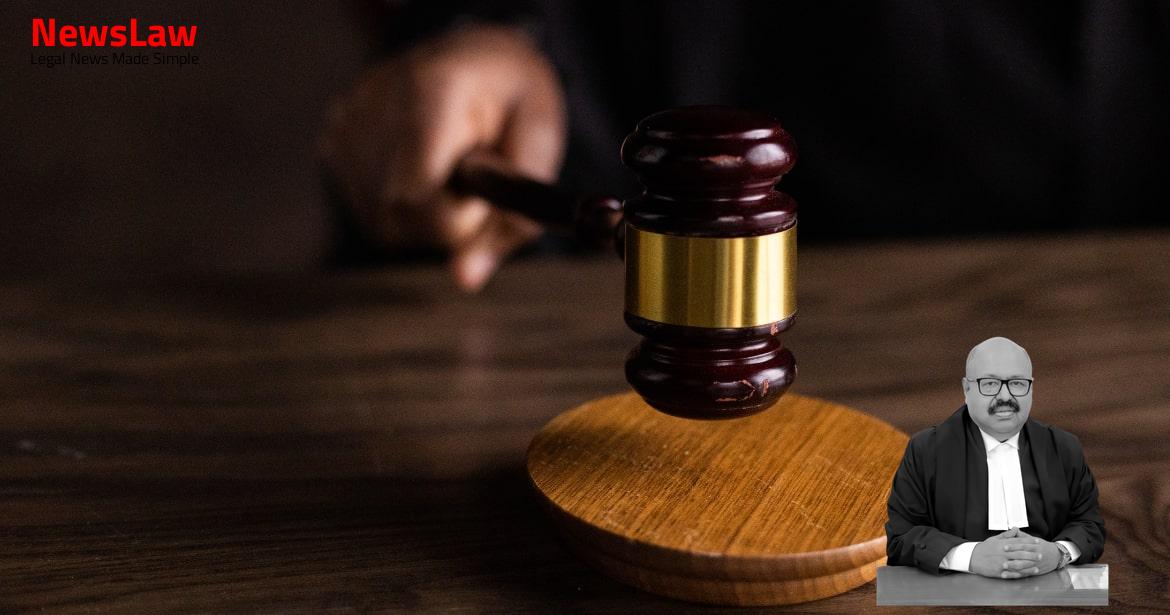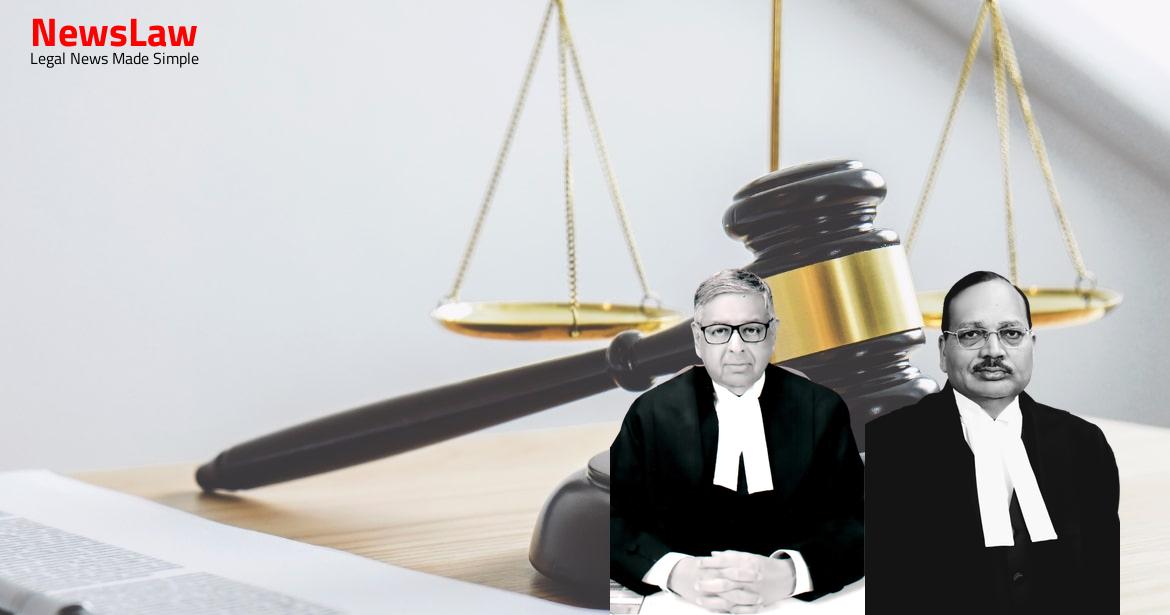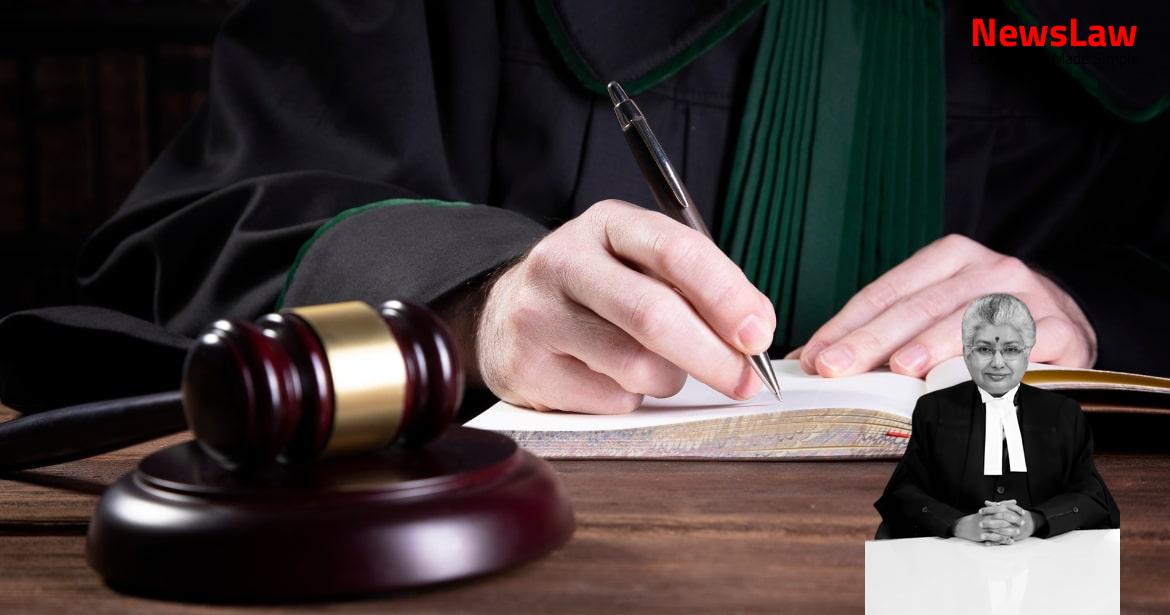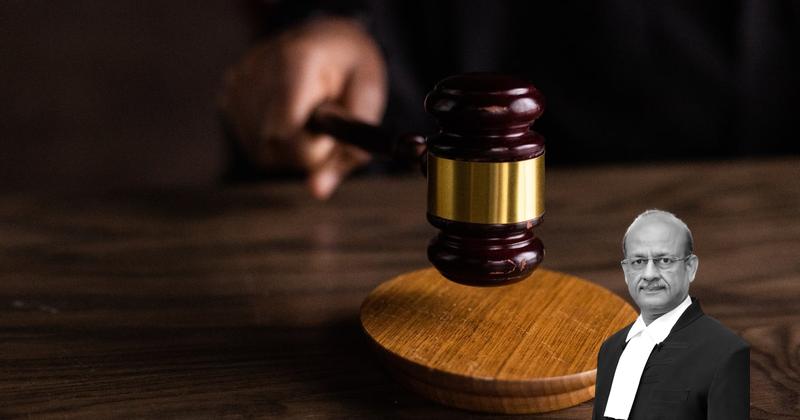Explore the critical analysis of abetment of suicide in a case involving caste-related allegations. The court’s in-depth legal scrutiny regarding the need for proof of intentional abetment and instigation provides valuable insights into the complexities of such cases. This summary focuses on the court’s evaluation of the evidence and legal standards, emphasizing the importance of a clear mens rea in establishing liability under Section 306 IPC. #LegalAnalysis #AbetmentofSuicide
Facts
- An FIR was registered based on a complaint by the deceased’s brother under IPC and the Scheduled Castes and Scheduled Tribes (Prevention of Atrocities) Act.
- The complaint alleged that the deceased was called to the appellant’s house, abused with casteist remarks, and forcibly administered poison, leading to his death.
- Initially, the FIR was registered against the appellant, her brother, and sister for various offenses.
- Following investigation, a final report was filed only against the appellant for the offense under Section 306 IPC and Section 3(2)(v) of the Act.
- Cognizance was taken against the appellant, and non-bailable warrants were issued.
- The High Court disposed of the petition stating that disputed questions of fact cannot be adjudicated at the Section 482, Cr.PC stage.
- The appellant is facing trial under Section 306 IPC and Section 3(2)(v) of the Act in Special Sessions Trial No.23 of 2019.
- The matter is pending before the Additional District & Sessions Judge/Special Judge, Scheduled Castes & Scheduled Tribes (Prevention of Atrocities) Act in Meerut.
Also Read: Challenging Legal Analysis in 1989 Scheme Eligibility Case
Arguments
- Appellant is accused of abetting the suicide of the deceased by refusing to marry him.
- It is argued by the respondent that the appellant and her family members abused the deceased using casteist words.
- The only evidence presented is the claim that the deceased was in love with the appellant.
- The deceased consumed poison in front of the appellant’s house, but this does not prove any relationship between them.
- The appellant was allegedly harassed by the deceased, but without evidence of abetment.
- Abetment requires a mental process of instigation or intentional aiding.
- The appellant cannot be subjected to trial for the offenses under Section 306, IPC and Section 3(2)(v) of the Act.
- Deceased consumed poison and died in the hospital shortly after expressing his intention to marry the appellant.
- Deceased visited the appellant’s house on 04.05.2018 and threatened to consume poison if their marriage did not happen.
Also Read: Legal Analysis of Unilateral Cancellation of Registered Sale Deed
Analysis
- Appellant was not maintaining any relation with the deceased and there is no evidence of abetment of suicide under Section 306 IPC or offence under Section 3(2)(v) of the Act.
- Intention to provoke, incite, or encourage is required for abetment as per the Chitresh Kumar Chopra case.
- Suicidability patterns differ among individuals and each case must be assessed based on its own facts.
- Scrutiny of facts and circumstances is necessary before holding someone guilty under Section 306 IPC.
- Proof of direct or indirect incitement to suicide is essential for abetment of suicide.
- Allegations of harassment alone without evidence of instigation or direct action are not sufficient for conviction under Section 306 IPC.
- An active role through instigation or facilitating the suicide is required for liability under Section 306 IPC.
- Abetment involves instigating or aiding a person in committing suicide through a positive act.
- Conviction under Section 306 IPC requires proof of the accused’s intentional act of abetment.
- The steps laid down by the court in Rajiv Thapar & Ors v. Madan Lal Kapur for determining the veracity of a prayer for quashing proceedings under Section 482 CrPC.
- The four steps to consider in determining the veracity of a prayer for quashment raised by an accused invoking the power under Section 482 CrPC.
- Appellant and father complained to police about deceased’s continuous proposals to marry appellant.
- No credible material to proceed against appellant for alleged offence under Section 306 IPC and Section 3(2)(v) of the Act.
- No evidence of any relationship between appellant and deceased.
- Appellant had previously complained to police about deceased’s stalking.
- Judicial conscience should persuade High Court to quash criminal proceedings under Section 482 CrPC.
- Clear mens rea required to convict under Section 306 IPC.
- Exercise of power under Section 482 CrPC would do justice to accused and save court time.
- High Court erred in rejecting appellant’s application
- High Court did not properly consider the application under Section 482, Cr.PC
- Merely recording a finding of factual disputes was an error
- Factual disputes should not be a reason to dismiss the application
Also Read: Legal Analysis on Special Procedures and Dismissal Orders in Police Force Case
Decision
- Appeal allowed
- Order dated 18.07.2019 passed by the High Court of Allahabad set aside
- Application No.27662 of 2019 allowed by quashing the order/NBW dated 21.02.2019
- Proceedings of Special Trial No.23 of 2019 (State v. Kanchan Sharma) arising out of Crime No.0278 of 2018 under Section 306, IPC and 3(2)(v) of The Scheduled Castes and the Scheduled Tribes (Prevention of Atrocities) Act, 1989 pending in the court of Additional District & Sessions Judge / Special Judge (SC & ST Act), Meerut are quashed
Case Title: KANCHAN SHARMA Vs. THE STATE OF UTTAR PRADESH (2021 INSC 496)
Case Number: Crl.A. No.-001022-001022 / 2021



